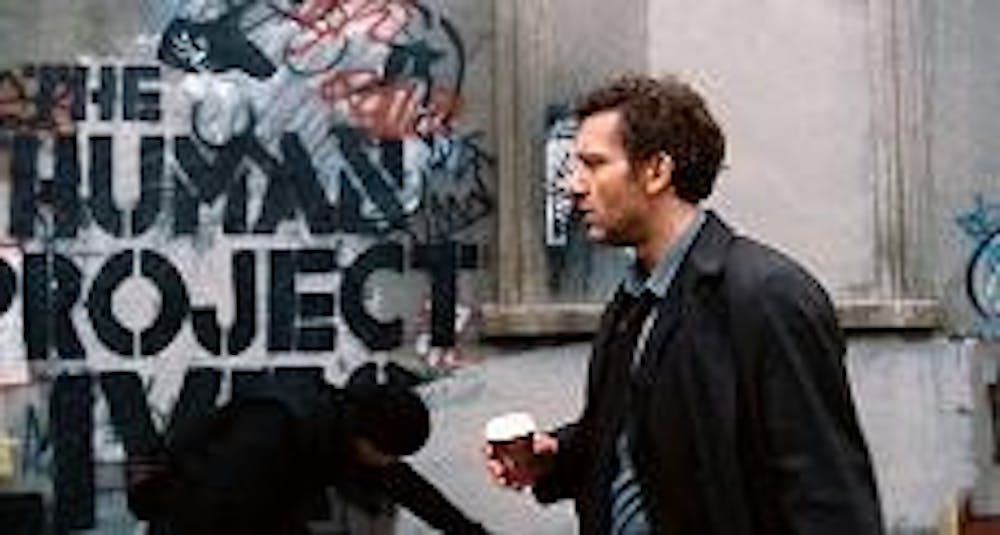The unseasonably mild winter on the east coast of the United States is yet another reminder that the latest vogue term for worldwide self-annihilation, "global warming," could be closer to fruition than anyone cares to realize. Like the menace of nuclear destruction, the threat of global warming is centered on the basic principle that humanity's blatant disregard for the environment will have dire consequences for civilization. Alfonso Cuar¢n's "Children of Men" re-imagines the disaster not as a sudden climate transformation or a release of catastrophic weapons, but rather as a worldwide infertility crisis that threatens the existence of humans as a species.
Cuar¢n's most acclaimed work until now was "Y Tu Mamá Tambi?n," a Mexican road trip movie of sexual exploration. Here the narrative is similarly focused on a journey, but the emphasis of the plot is less concerned with the transformation of characters than with the accomplishment of an important mission. Clive Owen plays Theo. a man enlisted to secretly transport the first pregnant woman in 18 years out of the oppressive English state while also evading insurgents who want to use her baby as a symbol for their cause.
In this film, Owen is strikingly dissimilar to the character he played last year in Spike Lee's "Inside Man." In that film, he was cool under pressure and supremely confident. Here, he bears the scars of a world-weary man: beaten down by the loss of a child, the dissolution of his relationship with the insurgent leader (Julianne Moore) and the inevitability of a society tearing itself apart.
But this film is much more than a character study. Although Owen is well suited for the role and Michael Caine thrives against type as an aging activist and marijuana grower, the bleak setting and technical aspects of this film are really the stars.
In the recent "V for Vendetta," another film representing a dystopian English future, the Wachowski brothers portrayed a political party conspiring to promote fear in order to gain and hold power. Here, oppression comes from isolation as the world experiences unprecedented terrorist attacks and England commits to a strict isolationism and anti-immigration policy to purify the society. While the former only provided snippets of repression and suffers from a somewhat contrived climax, the latter depicts realistically stark and often gory acts of violence between minorities struggling for freedom and police forces struggling for control. In an age where many conflicts of this nature exist around the world, this realism makes for more dramatic images than manufactured ones.
Most stunning is the camerawork employed by the filmmaker. These include an unflinching car sequence filmed at a breakneck pace and a 10-minute progression where the camera follows Owen through a war-torn city. Both shots are technically brilliant. The unusually long cuts are reminiscent of Tony Jaa's restaurant fighting scene in "The Protector," the visceral, blood-spattered follow shots evoke Steven Spielberg's "Saving Private Ryan," and the blunt, unexpected deaths of both minor and major characters call to mind Quentin Tarantino's style. Cuar¢n is in tune with his film history.
That does not mean "Children of Men" is flawless. The problem with human infertility stands in contrast to the procreation of animal life, which appears unaffected in the film. The question of why women are childless and how to solve the problem is clearly not the motive of the film, but explanation regarding such subjects is eschewed while the plot races along.
Overall, this film works because Cuar¢n makes the audience question the world it is creating for the next generation. In its climax, the simple cry of a baby is enough to briefly cease a fierce battle. It makes the combatants reflect upon their actions and momentarily change the perception of the world in which they live. As the credits roll after this film, moviegoers may be inclined to do the same.





